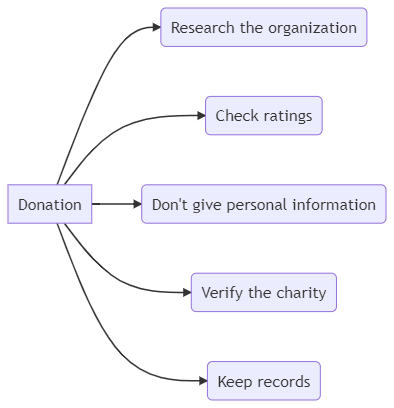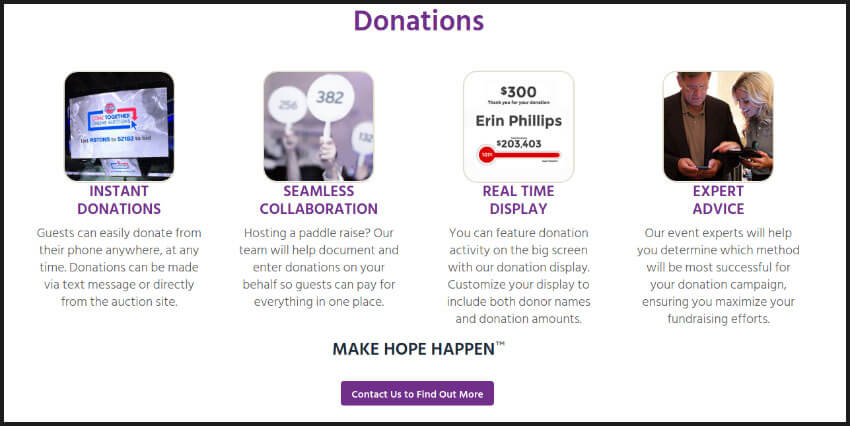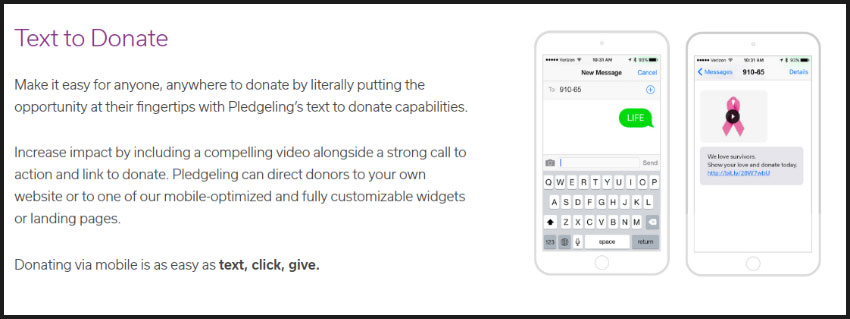
Introduction Donating
Donating is a form of philanthropy and service that has existed worldwide for centuries. It’s a way of giving back to society, supporting a cause you believe in, or helping people in urgent need. In this guide, we will cover everything you need to know about donations, from why you should donate to how to choose the proper organization.
Why Donate?
Donating can make a real difference in people’s lives. It’s a way to support a cause you believe in, and it can provide you with a sense of satisfaction and fulfillment. Donations can help fund research, support charitable organizations, and improve the lives of those in need. It’s important to note that not all gifts have to be monetary; you can also donate goods or services.
Choosing the Right Organization
It is choosing the proper organization to donate money to can be a challenging task. You want to ensure that your donation goes to a trustworthy and reputable organization that will use the funds appropriately.
One way to determine if an organization is reliable is to check its ratings on charity watchdog websites such other organizations such as Charity Navigator, GuideStar, or CharityWatch.
You can also research the organization’s mission, goals, and financial reports to ensure they align with your values.

Types of Donations
There are various types of donations, including cash, other gifts, in-kind, and planned giving.
Cash donations are the most common form of donation and are typically tax-deductible. In-kind donations refer to donating goods or services, such as household items, clothes, or food, to a homeless shelter or volunteering at a local charity.
Planned giving involves donating through your estate plan, such as leaving a gift as a gift bequest in your will or making a gift through a charitable gift annuity.
Tax Benefits of Donating
Donating can also provide you with tax benefits. Charitable gifts and donations to qualifying nonprofit organizations are typically tax-deductible. Y
You can deduct the amount of your facility or grant from your taxable income, reducing your overall tax liability.
However, keeping accurate records of your gifts and donations, such as receipts or acknowledgment letters, is essential to support your tax deductions.

How to Donate
Once you’ve decided on an organization to donate to, you’ll need to determine the best way to pay or to make your donation.
Many nonprofit organizations offer various payment methods, including online donations, mail-in donations, and donations by phone.
Some nonprofit food organizations may also accept donations of goods or services, which can be delivered in person or shipped to the food organization.
Donation Safety Tips
When donating online marketplace, however, it’s essential to take precautions to ensure that your donation goes to a trustworthy nonprofit organization and that your personal information remains secure.
Here are some safety tips to consider when donating online:
- Please do your research: Research the organization to ensure they are reputable and trustworthy.
- Check ratings: Check the organization’s ratings on charity watchdog websites such as Charity Navigator, GuideStar, or CharityWatch.
- Don’t give personal information: Be cautious when providing personal information such as your social security number or credit card information.
- Verify the charity: Verify that the charity is legitimate and that the person soliciting the donation is authorized.
- Keep records: Keep accurate records of your donations, including receipts or acknowledgment letters.
Donating is a selfless act that can significantly impact someone’s life. Therefore, choosing the proper organization is essential to ensure that your donation goes to a trustworthy and reputable organization that will use the funds appropriately.
Taking safety precautions to protect your personal information and ensure your donation goes to the intended organization is essential.
We hope this guide has provided valuable information on donations and encourages you to give back to your community.

Online donation tool
As a leading provider of online blood donation tools, we understand the importance of finding the right blood drive platform to support your fundraising goals.
That’s why we’ve compiled this comprehensive guide to today’s top donation platforms and online blood donation tools.
We aim to provide you and your families with all the information you need to decide and choose the best blood donation platform for your needs.
Top Online Donation Platforms:
Donorbox:
Donorbox is a powerful and easy-to-use donation platform that enables nonprofits to accept donations on their websites.
With Donorbox, you can create customizable donation forms, submit them, track donations from volunteers and donors, and integrate blood donation with various payment gateways.
Donorbox is known for its affordable gift pricing, with a flat fee schedule of 1.5% per donation.
Give Lively:
Give Lively is a donation platform explicitly designed for nonprofits. Give Lively provides a range of features, including customizable donation pages, free peer-to-peer donation services, fundraising, and text-to-donate capabilities.
Give Lively charges no platform fees, and the donor covers transaction fees.
Qgiv:
Qgiv is a free and comprehensive online fundraising platform offering various features, including customizable donation pages, event registration, contact us, and peer-to-peer fundraising.
Qgiv also integrates with various payment gateway services, making accepting donations from anywhere in the world easy.
Network for Good:
Network for Good’s website is an online donation platform that provides nonprofits with various fundraising tools, including donation pages, volunteers, peer-to-peer fundraising, gift-giving, and crowdfunding.
Network for Good’s website also offers an extensive database of potential donors and volunteers, making it easy to reach new supporters.
Kindful:
Kindful is a free nonprofit donor management platform that provides nonprofits and volunteers with various features, including customizable donation pages, fundraising analytics, and integrations with multiple payment gateways.
Kindful is known for its user-friendly interface, community, and powerful reporting capabilities
Impact of Donations
Donations can make a difference and significantly impact the lives of individuals and communities.
They can help fund vital research, support education and healthcare, aid disaster relief efforts, and create and support social and environmental causes.
Additionally, donations can provide tax benefits for individuals and corporations, making it an excellent way for donors to give back to the community while benefiting financially.
Types of Donations
There are many ways to donate, including:
- Monetary donations: Cash or check donations, credit or debit card payments, and online offerings through websites or mobile apps.
- In-kind donations are non-monetary donations such as goods, services, or property.
- Planned giving involves leaving a donation in your will, trust, or estate plan.
- Donor-advised funds: These are charitable giving accounts managed by a public charity that allows donors to make a tax-deductible contribution, receive an immediate tax benefit, and recommend grants to other charities over time.
- Corporate giving: This involves donations made by businesses to support charitable causes or organizations.

How to Choose a Charity
With so many charities, deciding which one to support can be overwhelming.
Here are some tips to consider when choosing a charity:
- Research the charity’s mission and goals: Make sure the charity’s mission and goals align with your values and beliefs.
- Evaluate the charity’s effectiveness: Check its track record to see how effective they are at achieving its goals and using its resources.
- Check the charity’s financial information: Review its financial information to ensure it is transparent and uses donations responsibly.
- Consider the charity’s reputation: Research its reputation by checking its ratings on charity watchdog websites and reading reviews from other donors.

Impact of Donations Donations can make a difference and significantly impact the lives of individuals and communities.
They can help fund vital research, support education and healthcare, aid disaster relief efforts, and support and funding for social and environmental causes.
Additionally, donations can provide tax benefits for individuals and corporations, making it an excellent way to encourage donors to give back to the community while benefiting financially.
Types of Donations
There are many ways to donate, including:
- Monetary donations: Cash or check donations, credit or debit card payments, and online offerings through websites or mobile apps.
- In-kind donations are non-monetary donations such as goods, services, or property.
- Planned giving involves leaving a donation in your will, trust, or estate plan.
- Donor-advised funds: These are charitable giving accounts managed by a public charity that allows donors to make a tax-deductible contribution, receive an immediate tax benefit, and recommend grants to other charities over time.
- Corporate giving: This involves donations made by businesses to support charitable causes or organizations.
How to Choose a Charity With so many online charities, deciding which to give money to support can be overwhelming.
Here are some tips to consider when choosing a charity:
- Research the charity’s mission and goals: Make sure the charity’s mission and goals align with your values and beliefs.
- Evaluate the charity’s effectiveness: Check its track record to see how effective they are at achieving its goals and using its resources.
- Check the charity’s financial information: Review its financial information to ensure it is transparent and uses donations responsibly.
- Consider the charity’s reputation: Research its reputation by checking its ratings on charity watchdog websites and reading reviews from other donors.

Additional Features to Consider:
In addition to the other items on top donation service platforms we’ve already discussed, there are a few other features to consider when choosing to join an online donation services platform:
- Customization: Having a donation page that reflects your organization’s brand and style can go a long way in building trust with potential donors. Look for a platform that offers a range of customization options, such as adding your logo and brand colors.
- Mobile Optimization: More and more donors are donating on their mobile devices. Ensure your platform is optimized for mobile devices, with easy-to-use forms optimized for small screens.
- Reporting and Analytics: To improve your fundraising efforts over time, it’s essential to have access to detailed reporting and analytics. Look for a platform with robust reporting features, such as tracking donor behavior and identifying trends in your fundraising efforts.
- Security: Donors want to feel confident that their personal and financial information is safe when donating. Look for a platform with robust security features, such as SSL encryption and PCI compliance.
- Integrations: Finally, look for a platform that integrates with other tools you may be using, such as your CRM or email marketing software. Integrations can help streamline your fundraising efforts and make it easier to manage donor relationships over time.
Tax Benefits of Donations
One of the benefits of donating is the potential tax benefits. In many countries, including the United States, donations to qualified charitable organizations can be tax-deductible.
This means that the donor can deduct the donation amount from their taxable income, reducing the amount of tax they owe.
To claim a tax deduction for a donation, the donor must itemize their deductions on their tax return and provide documentation of the grant date.
The documentation should include the name of the donor database, the charity, the date and amount of the donation, and any relevant receipts or acknowledgments from the charity.
Donors need to note that not all donations are tax-deductible. For example, contributions to individuals, political campaigns, or foreign organizations are generally not eligible for a tax deduction.
Additionally, there are limits on the number of charitable contributions that can be deducted in a given year, depending on the donor’s income and the type of donation.
Charitable Giving Strategies:
Donors can use various strategies to maximize the impact of their charitable giving. Some of these strategies include:
- Donor-Advised Funds: These charitable giving accounts managed by a public charity allows donors to make a tax-deductible contribution, receive an immediate tax benefit, and recommend grants to other charities over time.
- Charitable Trusts: These are legal arrangements in which a donor transfers assets to a trust, then makes donations to charities over time. Charitable trusts can provide tax benefits and control over how and when contributions are made.
- Matching Gifts: Some employers offer matching gift programs that reach their employees’ donations to eligible charities. This can double the impact of the donor’s donation and is an easy way to increase the support for a chosen charity.
- Donating Appreciated Assets: Donating appreciated assets, such as stocks or real estate, can provide significant tax benefits, as well as support for a chosen charity. When the donor donates the asset, they can avoid paying capital gains tax on the appreciation. They may also be able to deduct the asset’s full market value from their taxable income.

Conclusion
In conclusion, donating is a selfless act that can make a difference and significantly impact someone’s life.
Choosing the proper organization is essential to ensure your donation goes to a trustworthy and reputable organization that uses the funds appropriately.
Donations can also provide you with tax benefits, and it’s essential to keep accurate records to support your tax deductions.
We hope this guide has provided valuable information on donations and inspires you to see different ways to give back to your community.
CoopBusiness is a revolutionary cooperative business-building platform that empowers individuals to become entrepreneurs, business owners, and financially independent.
As a member, you’ll receive top-level business mentorship, access to our proprietary business systems, and the opportunity to access the funds you want to turn your business ideas into reality.